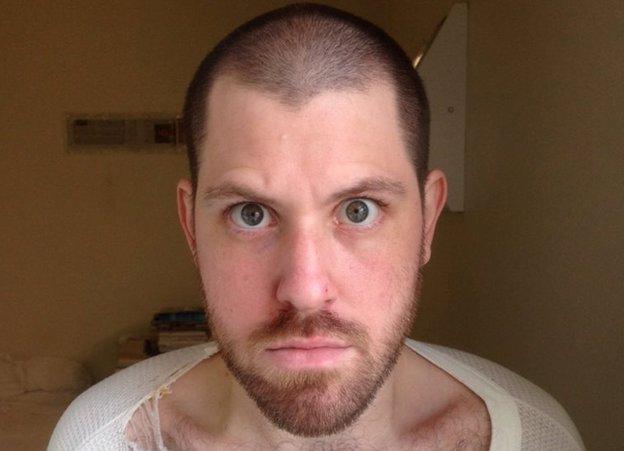Virginia execution splits murder victim's family
- Published

William Morva's lawyers argued his crimes were the result of his severe mental illness
The execution of a Virginia man convicted of killing two men has gone ahead, despite claims he suffered from mental health problems.
William Morva, 35, was given the lethal injection at 21:00 local time (01:00 GMT) and died 15 minutes later.
He was convicted of the 2006 killings of a hospital security guard and a sheriff's deputy.
The deputy's daughter was among thousands who had urged the Virginia governor to grant clemency.
But the deputy's mother disagreed, and did not want Morva's life to be spared.
Morva was awaiting trial on 2005 robbery charges when he was taken to the hospital for an injury.
He attacked a sheriff's deputy, stole the official's gun and fatally shot hospital security guard Derrick McFarland, who was unarmed.
Before he was captured near Virginia Tech's Blacksburg campus a day later, Morva shot Sheriff's Deputy Eric Sutphin in the back of the head.
Morva's lawyers had argued he suffered from delusional disorder, which is similar to schizophrenia, adding that his condition worsened because prison doctors had refused to treat him.
They had asked Governor Terry McAuliffe to commute his sentence, contending a jury that convicted him without knowing the severity of his condition.
But the governor of Virginia refused to grant a last-minute stay of execution.
More than 34,000 people petitioned the Democrat to halt Thursday's execution, including the slain deputy's daughter, Rachel Sutphin.
"I am against the death penalty for religious and moral reasons," Ms Sutphin said in an email to reporters.
"I have fought and will continue to fight for clemency for all death row inmates until Virginia declares the death penalty unconstitutional.
"I have sent my own letter to the governor showing my support for clemency."
But the deputy's mother, Jeaneen Sutphin, said while she sympathised with Morva's family, she wanted the scheduled lethal injection to proceed.
"I have no hatred for this creature who shot him execution-style. I just want justice for my son," she told the Roanoke Times on Wednesday.
The jury that convicted Morva was told he suffered from a personality disorder that resulted in "odd beliefs", but he later was diagnosed with a more severe mental illness,
The US Supreme Court declined to hear Morva's appeal in February.
National mental health advocates, 20 Virginia lawmakers and two United Nations human rights experts all joined calls to block his execution.
The government of Hungary, where Morva is a dual citizen, and the European Union had also urged the governor to intervene.
Virginia has now surpassed Oklahoma for second place in a ranking of the US states with the most executions, according to the Death Penalty Information Center.
Until Morva's execution, Virginia and Oklahoma had each executed 112 people since the death penalty was re-instated in 1976.
Texas has executed 542 people during the same period.